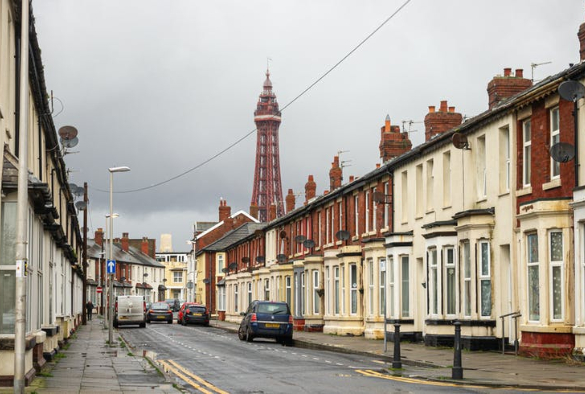A new project co-led by researchers from the University of Liverpool and the University of Bristol will seek to tackle health inequalities in coastal communities.
The researchers have been awarded £2.4M through the UK Research and Innovation (UKRI) Arts and Humanities Research Council (AHRC) Mobilising Community Assets to Tackle Health Inequalities programme which aims to improve health through access to culture, nature and community.
Coastal communities suffer some of the worst health outcomes and inequalities in the UK but they are also rich in community assets, such as cultural organisations, community centres, and charities supporting residents’ wellbeing.
Focusing on three different coastal towns – Blackpool, Weston-super-Mare, and Hastings – the project will bring together the NHS, local authorities, researchers, voluntary and community organisations and residents to see how greater collaboration can tackle health inequalities.
It will focus in particular on key problem areas in mental health – young people’s mental health, substance misuse, and life-limiting illness and bereavement – with the aim of improving community-based support. The project will achieve this by bolstering and evidencing the impact of creative community assets and supporting partnership working and integration of creative community assets into health and social care systems.
The project is co-led by Dr Barbara Mezes, University of Liverpool, and Dr Lucy Selman, University of Bristol.
Dr Mezes, a lecturer in Clinical Psychology at the University of Liverpool’s Institute of Population Health said: “I am very excited to collaborate with Dr Selman and a very strong team, and I am grateful for this opportunity. Coastal communities face many challenges, including poverty, but they have many community assets, such as cultural organisations, community centres, and charities working tirelessly to support the wellbeing of local residents. This funding will allow us to work with community partners across three coastal areas to better integrate creative community assets into health and social care systems by bolstering cross-sector local and national partnerships. We will generate the evidence base to inform local actions and a national strategy to tackle inequalities, address mental health needs, and improve the wellbeing of people living in our coastal communities.”
Dr Selman, Associate Professor in Palliative and End of Life Care at the University of Bristol’s Centre for Academic Primary Care, said: “Coastal communities suffer some of the worst health outcomes in the country, and significant inequities throughout the life course. We are delighted to collaborate with Dr Barbara Mezes and colleagues nationally to expand our work in serious illness and bereavement to benefit other coastal communities, and to widen our focus to include young people’s mental health and wellbeing and substance misuse – key areas of concern in our communities. We are hugely grateful to UKRI and AHRC for supporting this project.”
AHRC Health Inequalities Programme Director Helen Chatterjee said: “The evidence is clear – intellectual stimulation, a sense of purpose, engagement in your community and a fulfilling social life are as important as diet, exercise and medical care when it comes to living a long and healthy life. Yet often public health interventions neglect this reality.
“These funded projects seek to improve the length and quality of our lives by making use of the rich cultural, artistic, nature and social resources that already exist within our communities. In this way, we can shape a healthier, happier Britain.”
This is the third phase of the programme, led by AHRC in collaboration with BBSRC, ESRC, MRC and NERC, all part of UKRI. Additional funding has come from UKRI’s Building a Secure and Resilient World, and Creating Opportunities, Improving Outcomes strategic themes.
The programme is also run in partnership with the National Centre for Creative Health.
For a full list of funded projects, see https://www.ukri.org/news/projects-to-help-communities-reduce-health-inequalities/
